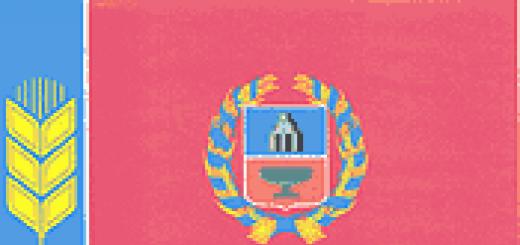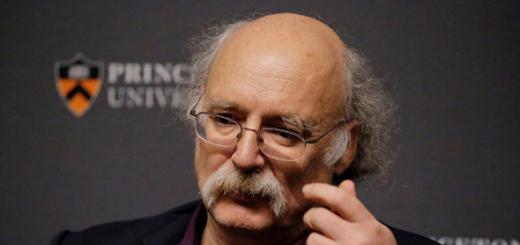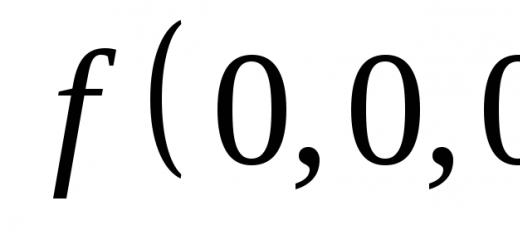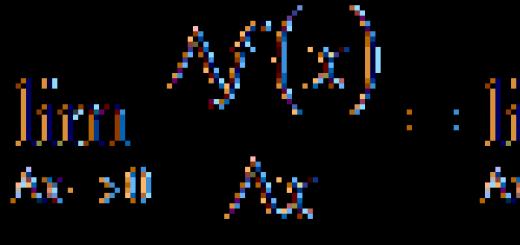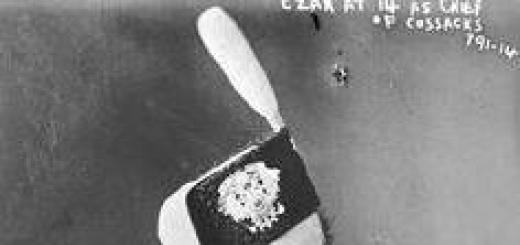There are two systems for assessing emotional images and forming your own emotional response. One for conscious signals, the other for unconscious ones.
Digression: it must be said that “unconscious” and “subconscious” are not the same thing. Freud's "subconscious" includes active suppression, displacement from consciousness. As far as I understand, no evidence of the real existence of this system in the human brain has yet been discovered. (In general, I get the impression that Freud, although he was a man with an amazing imagination, played in the sense of neurobiology, but did not guess a single letter.) “Unconscious” is that which does not reach consciousness. There are two main reasons for this:
1) Insufficient strength of the stimulus to produce a response in those parts of the brain that are associated with conscious processing of the stimulus, for example, the contrast of the image is too low or the speed of movement is too fast;
2) At the moment the stimulus appears, attention is directed to something else. Processing of incoming information to which attention has not been paid essentially does not occur. We see only what our attention is directed to. More precisely, we only realize this.
To study the system of unconscious processing of emotions in healthy people, experimental designs are used that force a person to pass part of the stimuli past consciousness. For example, built on the “attentional blink” effect. I don’t know how this term is used in Russian literature and whether it exists there. Let's translate it as “blink of attention.” Its essence is as follows: if a person is presented with two images in succession with an interval of 200-500 milliseconds, then the second image is not detected at all. An alternative version of “backward masking” - “reverse masking” - if presented on a short time two stimuli with an interval of less than 30 milliseconds between them, then, on the contrary, only the second stimulus in the sequence is perceived. Even more interesting is the data obtained from studying patients with “cortical blindness” - blindness that occurs when the primary visual areas of the cortex are damaged. (Primary in the sense that the main input to the brain of signals from the retina goes through them). These people do not see at a conscious level at all, since their cortical areas are destroyed, without which conscious processing of the visual picture does not occur. But at the same time, they retain intact third-party pathways that are not associated with conscious processing, but allow them to see at an unconscious level. Such a person, for example, wonderfully avoids obstacles in his path, but is unable to say anything about them and does not understand how he avoids them. Well, they also react to certain emotional images, and can describe their emotions, but remain completely unaware of their causes.
The system of unconscious processing* is faster: the reaction to the demonstration of an emotionally significant stimulus here occurs within 20 milliseconds, and in the system of conscious processing** - no earlier than after 40-50. The “unconscious” system, apparently, is able to work not with all stimuli, but only with strong and evolutionarily significant ones. For example, in facial expressions she reacts to fear, aggression, happiness, disgust, but more complex ones, such as feelings of guilt or arrogance, are for the “conscious” part. “Unconscious” is good at highlighting obvious dangers, such as snakes or spiders, but it is indifferent to things that evoke compassion (images like burning horses) or cultural rejection (cockroaches). This must first pass through consciousness.
It is assumed that the unconscious system is used to quickly attract attention to a significant stimulus, to speed up and enhance its processing, and that the two systems are ultimately connected. However, the existence of an “unconscious” system creates the possibility for the emergence of emotions, the source of which remains unconscious, and for the influence of emotional stimuli on decision-making, especially quick ones.
————
For inquisitive biologists:
*retina – superior colliculus – pulvinar – amigdala
**retina – LGN – cortex (especially orbitofrontal and cingulate) through V1 – amigdala and other subcortical structures.
http://catta.livejournal.com/
The creation of modern psychology as a science of the psyche and behavior in all their forms and ranges became possible to a large extent thanks to the discovery and use of fundamentally new approaches to the study and understanding of the nature and essence of man.
The most significant of them, in terms of content and consequences, was the Copernican revolution of Sigmund Freud. The indisputable historical merit of S. Freud is that he laid the foundation for the systematic psychological research unconscious psyche, created the doctrine of the unconscious, psychoanalysis and the psychoanalytic tradition. Awareness of the real achievements of S. Freud presupposes an understanding of the important circumstance that it was he who was the first to overcome the internal limits of psychoanalysis and actually laid the foundations depth psychology(the concept of E. Bleuler), oriented towards the study of the unconscious psyche, but by no means reduced to its psychoanalytically labeled elements.
To a significant extent, it was as a result of these achievements that human psychology, hitherto aimed almost exclusively at the study of the phenomena of consciousness and self-awareness, acquired new dimensions and qualities that made it possible to relatively correctly determine its object and subject, goals and objectives, ideals and norms of research, explanatory principles, methodology, methods and methodological procedures, main sectors, problem fields, functions and significantly supplement, update and strengthen the conceptual potential and categorical-conceptual apparatus.
A retrospective analysis of the problems of the unconscious shows that it has a specific tradition. Some hints about the possible existence of such a problem were contained in the early forms of folklore and the mythology of religion. IN different meanings and meanings, the problem of the unconscious has been posed and developed in philosophy and psychology throughout their history.
In the European rational tradition, the idea of the unconscious mental goes back to the era of the creation of philosophy (to the teaching of Socrates and Plato about anamnesis - knowledge-remembering, Aristotle's teaching about different parts of the soul, etc.). Significant contributions to the subsequent pre-psychoanalytic and extra-psychoanalytic understanding and study of the problem of the unconscious were made by B. Spinoza (unconscious “reasons that determine desire”), G. Leibniz (interpretation of the unconscious as the lowest form of mental activity), D. Hartley (connection of the unconscious with activity nervous system), I. Kant ("dark ideas", the connection of the unconscious with the problems of intuitive and sensory knowledge, "in the deepest sleep the soul is most capable of rational thinking"), A Schopenhauer (ideas about unconscious internal impulses), K. Carus (key unconscious in the subconscious), E. Hartaman (“Philosophy of the unconscious”), G. Fechner (the idea of the “iceberg soul”), T. Lipps (“unconscious ideas” and “unconscious sensations”), W. Wundt (“unconscious thinking ", "the unconscious nature of the processes of perception"), G. Helmholtz (the doctrine of "unconscious conclusions"), I. Sechenov ("unconscious sensations or feelings"), I. Pavlov ("unconscious mental life"), V. Bekhterev (activity "unconscious"), A. Liebeau and I. Bernheim (post-hypnotic suggestion and behavior), J. Charcot (ideas about invisible and unconscious mental trauma), G. Lebon (unconscious nature of human behavior; the unconscious as the dominant set of mental processes, always predominant in the crowd and controlling the “collective soul” of the crowd), G. Tarde (“laws of imitation”), P. Janet (mental automatisms and unconscious factors of neuroses), A. Bergson (intuitionism, the unconscious, “superconsciousness”) and many others. In general, these ideas and concepts can be understood as unique growth points in understanding the problem of the unconscious psyche.
In the twentieth century, the most detailed and systematic idea of the unconscious psyche was developed within the boundaries of the psychoanalytic tradition, which now has a number of teachings, theories, concepts and models of varying degrees of generality, reliability and heuristics.
Fundamentally important results were obtained by S. Freud, who created the correct psychological definition the unconscious, the doctrine of the unconscious, the corresponding categorical-conceptual apparatus and methods of cognition; who established some elements of the content, functioning and regulation of the unconscious.
Defining the unconscious as mental processes, “which manifest themselves actively and at the same time do not reach the consciousness of the person experiencing them,” S. Freud proposed a well-founded understanding of the unconscious as the main and most meaningful system of the human psyche (unconscious - preconscious - conscious), regulated by the principle of pleasure and includes various innate and repressed elements, drives, impulses, desires, motives, attitudes, aspirations, complexes, etc., characterized by unconsciousness, sexuality, asociality, etc. According to S. Freud, in the unconscious there is a constant struggle between Eros (drives and forces of life, sexuality and self-preservation) and Thanatos (drives and forces of death, destruction and aggression), using the energy of sexual desire (libido). According to classical psychoanalytic teaching, the content of the unconscious includes: 1) content that was never present in the individual’s consciousness and 2) content that was present in consciousness, but was repressed from it into the unconscious (desires, memories, images, etc.). ).
In fact, in the teachings of S. Freud, not two (as is usually believed), but three types of the unconscious are distinguished: 1) Latent unconscious, the content of which, in general, corresponds to the preconscious system of the psyche and can be realized by the individual, 2) Repressed unconscious, the awareness of which presupposes the use of special (according to Z. Freud, psychoanalytic) methods and 3) Inherited universal human unconscious, represented, for example, in the immanent principles of mental life, universal Oedipus and castration complexes, drives, motivations, etc.
But, unfortunately, S. Freud did not qualify the inherited unconscious even with the degree of completeness, categorical certainty and consistency that are characteristic of his interpretation of other forms of the unconscious, as a result of which additional and excessive incorrectness appeared in psychoanalysis and the psychoanalytic tradition. In this case, perhaps, it would be more expedient to state the fact of the existence of a phylogenetic (i.e., species-wide, universal) and ontogenetic (i.e., individual) unconscious. Moreover, the representation of the unconscious in certain phylogenetic and ontogenetic hypostases almost automatically opened up opportunities for their concretization, search for relationships and other potential possible forms existence of the unconscious.
In terms of knowledge of the psyche, behavior and the unconscious mental person The dialectical energy-information model of the psyche (Unconscious - Preconscious - Conscious) created by S. Freud has played and continues to play a special role. In the light of modern scientific concepts, this model can be understood, including as a psychological imperative and a prototype for the construction of the latest energy-information models of the psyche, without which effective development modern psychology and border disciplines is hardly possible.
Taking into account the role that was given in S. Freud's psychoanalysis to the cognition and interpretation of dreams, as " royal road"into the world of the unconscious psychic person, it should be noted that in the psychoanalytic tradition some important issues were not adequately explained or were not even formulated with the desired degree of certainty. These may include, for example, problems of understanding the nature and essence of dream consciousness and dream self-awareness (including self-control) and their interaction with unconscious forces and tendencies. The problem of the possibility of controlling dreams (i.e., influencing their content and direction) and the problem of the possibility of achieving artificial dream catharsis can and should be understood as special problems. The study of these problems seems all the more important since the principle of external similarity and sexual symbolism of dreams proposed by S. Freud, as it turned out, do not at all have the universality that was attributed to them.
S. Freud's teaching initiated and stimulated the emergence and development of many different approaches to the study of the unconscious mind, within which interesting ideas were formulated and important results were obtained (for example, ideas about intrapsychic communications, compositional features and stratification of the unconscious, the brain substrate of the unconscious, holographicity elements of the unconscious, content and functional asymmetry of interhemispheric interaction of the unconscious, the probabilistic nature of unconscious processes, etc.).
But actually psychological level The most stable vector of development still remains the psychoanalytic tradition, the evolution of which, in general, is aimed at moving from the teaching to the modern scientific theory of the unconscious psyche through successive approximations.
In this regard, the concepts of K.G. Jung, J. Moreno and E. Fromm became essential stages and results.
According to the analytical psychology of C. G. Jung, the unconscious consists of three layers: 1) Personal unconscious - the superficial layer of the unconscious, which includes predominantly emotionally charged ideas and complexes that form the intimate mental life of the individual, 2) Collective unconscious - the innate deep layer of the unconscious, a common center and core of the psyche, which has not an individual, but a universal nature, representing the experience of previous generations of people and including superpersonal universal content and patterns that act as a universal basis mental life. The main content of the collective unconscious, according to C. G. Jung, consists of archetypes, that is, inherited universal patterns, symbols and stereotypes of mental activity and behavior and 3) the Psychoid unconscious - the most fundamental level unconscious, having properties common to the organic world and a relatively neutral character, due to which it, being neither completely mental nor physiological, is almost completely inaccessible to consciousness.
IN general view These ideas are primarily a kind of psychoanalytic remake, since, ultimately, through updated designations they reproduce S. Freud’s basic ideas about the existence of the unconscious, its phylogenetic and ontogenetic forms, the stratification of the unconscious, the dominant role, etc. However, at the same time, C. G. Jung also introduced certain innovations, associated mainly with the existence and functioning of archaic mental structures. Having carried out the reduction of the collective (i.e. phylogenetic) unconscious to the mental evolutionary archaism, expressed in archetypes, he significantly contributed to the understanding of the basic concepts and dimensions of the unconscious psyche and significantly increased the heuristic potential of the psychoanalytic tradition. At the same time, it should be noted that C. G. Jung’s assumptions about the existence of some specific archetypes, their forms and roles require further critical verification and appropriate justification.
Developing S. Freud's hypothesis about the possible existence of a direct relationship and communication between the unconscious different people, J. Moreno formulated the concept according to which an essential basis and mechanism of communication and interaction between people is the “common unconscious”, which arises and functions during relatively long-term contact between partners and helps to relieve interpersonal role conflicts. Generally presented as a generalization cognitive activity and the results of practice, it received neither theoretical nor practical confirmation.
A significant event in the development of psychoanalytic and psychoanalytically oriented ideas about the unconscious was the creation by E. Fromm of the concept of the “social unconscious,” which is the repressed spheres characteristic of the majority of members of society and containing what a given society cannot allow its members to bring to awareness. However, the description and explanation of the social unconscious did not receive the necessary elements of organization, evidence and validity.
In contrast to the psychoanalysis of S. Freud (and partly the analytical psychology of C. G. Jung), undeveloped and uncoupled concepts of the general unconscious and social unconscious, with all their merits and heuristic potential, are a specific form of opinions and assumptions, and not justified working hypotheses, much less especially scientific theories, corresponding to the standards of modern scientific knowledge.
However, the introduction into psychoanalytic circulation of ideas about the general and social unconscious gave rise to the appearance of completeness of the psychoanalytic picture of the unconscious mind and the illusory idea that modern psychoanalysis has some kind of general theory of the unconscious.
The historically important achievements of the psychoanalytic tradition in the formulation, comprehension and private solutions of the problem of the unconscious are great and indisputable. But at the same time, at present there are no necessary and sufficient reasons to believe that modern psychoanalysis has such a theory or the ability to monopolize the creation of a general theory of the unconscious that meets the standards modern theory and practice. And in this regard, the actual withdrawal of the psychoanalytic community from discussing this fundamental problem is very significant.
The current fragmentation and approximation of ideas about the unconscious and the very significant role of this problem give reason to believe that modern general theory the unconscious psyche is not a result, but one of the most pressing tasks theoretical psychology and border disciplines, the solution of which naturally implies the need to use the enormous potential of positive psychoanalytic ideas, approaches and results.
V.I.Ovcharenko
Do you know how to feel others? A special empathy test will help you figure this out! 99% accuracy!
Empathy... There is so much in this... feeling!
Yes, empathy¹ is the ability to feel the emotions and mood of other people, to experience other people’s worries as if they were your own.
This unique ability allows the one who possesses it to learn everything about a person with the help of his inner sensation.
To one degree or another, we all feel the emotions and moods of other people, but what happens if we develop this ability?
The gift of empathy opens up incredible possibilities!
This is an invaluable find for any relationship!
Imagine…
You're getting a job!
Come to your boss and expect an interview. You have a couple of minutes, and during this time you can do a lot, a lot. What does a leader need? Your resume? Not at all! Read his thoughts, feel his condition, his desires, and tell him what he wants to hear! Yes, any employer will immediately “rip you off hands and feet”!
What if you fell in love?
And don't know how to attract attention? Are you afraid to reveal your feelings? Are you afraid of being rejected? “Read” a person and you will know how he treats you. Moreover, you will know what he wants, what he dreams of, what type he likes! Give him what he expects, and you will have no equal!
Not to mention deception, betrayal, lies...
If you have the gift of empathy, no one can deceive you anymore!
Do you want this?
Let's first find out if you have a predisposition to this gift! This unique empathy test will help you with this.
Empathy test!
To complete this empathy test, you will need an assistant :)
1. Ask a loved one or friend to sit across from you and remember something that is important and meaningful to him (you don’t have to know what).
2. While he is thinking, you try to tune in to your assistant. Try to feel what he is thinking about.
You don't have to guess his thoughts, no!
You just need to tune in to the emotional background of this person, feel whether his thoughts are positive or negative.
Or perhaps you will be able to determine their nature even more subtly?
For example, you may feel that a person is thinking about love or something pleasant that causes pleasure in him, or, on the contrary, he feels anger, irritation or resentment.
3. After you think you have sensed your assistant's emotions, ask him if you sensed his state correctly.
Empathy test results!
1. If you were able to correctly determine the nature of emotions (positive or negative), then you definitely have the ability to feel other people. You should develop in this direction!
2. If you managed to correctly guess the shades of your assistant's emotions, then you are probably already an empath. All that remains for you is to learn how to manage this gift in order to use it to your advantage.
3. If you incorrectly identified your assistant’s emotions or were unable to feel anything, then, most likely, empathy is not your thing (although in this case it is advisable to repeat the experience).
How to develop your ability to empathize?
Notes and feature articles for deeper understanding of the material
¹ Empathy - conscious or unconscious empathy for the current emotional state another person without losing the sense of the external origin of this experience
The labyrinths of the unconscious are an eternal road of numerous puzzles that will one day be solved by man. The unconscious is everything that concerns our karma, our experiences, our mind and our abilities. The role of the unconscious is great in our lives. The role of the conscious is even greater. How do these undivided parts of our mind exist? We are accustomed to using these terms in our lives, but in fact, many do not fully understand their meaning. After all, the unconscious is a “factory” for the production of Karma. And the conscious is a “workshop” for the distribution of karma, where they decide where to send it to the conscious or leave it again in the unconscious.
So, numerous reactions of human behavior are an integral experience of evolution acquired by human ancestors. That is, if 100 people in one family branch learn something, then what they learned will be passed on genetically to future generations. This is not only due to survival instincts and adaptation. This is also connected with what are called diseases. Yes, this is exactly how hereditary diseases are transmitted, inherited by certain individuals of the clan, only because before them, many individuals of the same clan used such unconscious experience for their own purposes.
The unconscious is everything that the mind remembers throughout life. There is a big difference between the conscious and the unconscious. If we take the average person, then his conscious in relation to the unconscious in percentage terms looks like this, the unconscious is 99% and the conscious is 1%. If you take an enlightened person, it looks exactly the opposite. Why? Yes, because most people live unconsciously. This means that their behavior is determined by spontaneous emotional decisions that are associated with unconscious experience. They always acted and reacted this way. Therefore, the lack of conscious analysis does not lead a person to a form of awareness of certain actions in his life. And the difference between those who know and those who do not is that the one who knows is trying to realize what he previously only understood. And the one who does not know is content with the knowledge that he receives at the initial stages of his development. That is, living with old experiences, reactions, behavior, a person does not think about why he does this. He may refer to heredity, bad character, and the fact that all this can no longer be corrected, “I was born like this.” If you figure out why we live, then the ultimate goal of any person is to one day know himself. But this happens when the karma experience is realized by a person.
Any action of the conscious and unconscious leads to the birth of new karma, that is, situations. It doesn't matter whether they are good or bad in terms of what good or bad is, it is still karma. Therefore, in order to transform karma, it must be given the opportunity to enter a third, neutral state. And this is already knowledge!!! That is, in a neutral state, karma loses its power. And in the conscious and unconscious, it increases strength.
The unconscious is something that we have been accumulating as experience for many millennia. And in this experience not only our individual experience, but also the experience of our ancestors. Our joy, kindness, our anger and resentment are experiences that we have acquired unconsciously. At the moment when a situation is present, the human mind makes millions of neural combinations regarding how to act. In fact, the mind finds these combinations among the experiences that a person once acquired. No more no less. So, because acting force our consciousness is our choice, then we are guided by this choice to choose the unconscious, that is, what is in the field of the unconscious. Our grievances, jealousy, our kindness and our compassion are energies that cause a certain chemical reaction in the body, forming our body in the likeness of these energies. That is, our body becomes a consonance with what we are in the unconscious.
In fact, this path is not easy. This is the path that leads to knowledge. After all, if you thought badly 100 times, then at least 100 times you need to think well, so that what was previously unconscious becomes conscious. And then, in order to become aware of your actions, you need to let this conscious experience be tested in life, gaining practical experience and strengthening yourself in awareness. And only then, this conscious experience, as the Spiritual quintessence of God, envelops the Spiritual body of a person.
Everything around us is our karma. You think she came just like that. No. She came so that we could understand her. After all, karma is WE! Believe that everything that is around us is a world of energies, which is our shadow. And the other half is contained within us. This is our knowledge. So, any situation, objects or subjects, is a mysterious algorithm that we all need to solve. After all, our environment is what potentially expresses our world within us. That is, our contents of the mind, conscious or unconscious, are energies that have their own vibration, which in turn attract another type of energy. No, not like that. Similar, on a vibrational level. But the difference is that this type of energy in us causes a SHADOW. Why do you think? In order for them to connect and transformation to occur. It looks as if a person was irritable, then there will always be irritants around him, not because this is done on purpose, but because a person’s irritation calls forth his other half-shadow from space, as these people, as another type of energy. And the task of such relationships is AWARENESS. Until an irritable person understands the harm of his behavior, and that by his behavior he creates a conflict, until then there will be people around him who cause him irritation. Until a jealous person understands that his jealousy is a manifestation of his Ego and his greedy ambitions. Until he realizes that there is nothing in this world that he can own. Until then, there will be people on his way who will betray him and cheat on him. Because this is the only way a person gains the experience of awareness. And then, when a person comes to awareness, then this part of conscious karma is separated from his being and fills his Spiritual body. And the more such alchemy occurs, the more a person will be freed from karma.
But in fact, what surrounds us is what we believe in. And this is also a product of our mind, just like what is in our mind. We are what we believe in. Many people say that life is simple. But in order to simply understand it, you need to go through a very long path of knowledge. For example, why does a person get sick? Everything, of course, starts with what a person thinks and feels. And the more he feels it, the more biochemical reactions occur in the body with changes in hormonal levels. Thus, the person gets sick. This means that for many years of life a person unconsciously believed in something. For example, if a person has cysts, then he is touchy. This means that for a long time he believed that the world was to some extent cruel and could offend him. And the more often a person thinks about it and experiences it unconsciously, the faster cysts will form. But the simplicity lies in the fact that everything that exists in this process is just the work of our mind, which unconsciously believed in its resentment towards the world around us. What you believe in is what you get. The entire material world is made up of atoms and molecules. So, who controls this process, so that the world in our field looks the way it does? Our mind!!! It is our mind that creates this world as we imagine it and experience it within ourselves. Therefore, to change the world, you need to change yourself.
Empathy is the conscious or unconscious attachment of the psyche (feeling) to the current emotional state of another person without losing the sense of the external origin of this experience.
Having the gift of empathy gives you insight into the experiences of others. You may feel someone else's pain and it may bring you to tears and you will want to help that person.
There is hyperactive empathy.
This is when you have this gift, but do not know how to control it, you are open to all the emotions and impressions of other people, but cannot center yours own feelings and needs. In society you feel the entire emotional background, even walking down the street, you can feel what is happening to people passing by. Physical empathy can even lead to physical pain that is not yours (“someone else’s headache”).
Empathy is a gift, for most people it is expressed in varying degrees. If you have the gift of empathy, you need to know how to turn it into your assistant and be able to “turn it off.” Ideally, you should be able to use it at will and “turn it off” when necessary. Some people intuitively know how to do this. Others don't know how to do this.
When you begin to empathize with someone (pity and sympathize), your field is destroyed.
In other words, when you are centered, you are like a solid bowl, after you begin to empathize and get nervous, your field becomes like a colander.
You have holes in your energy body through which your energy goes to the other person, so you begin to feel like you. The opposite also happens when energy flows into you and you absorb everything that happens around you; from other people, places and events.
When you master your gift, empathy becomes a true gift because it allows you to see things and events that happen to other people. Sympathy evokes compassion in us, and compassion allows us to take care of others and help people who turn to you. Empathy allows you to experience the unity of being, to feel what it is like to be another person, to understand the actions of other people.
***
If you don't know how to turn off this ability, then it can greatly affect your life and destroy you.
***
Disadvantages of having the gift of empathy if you don't know how to turn it off: The spectrum is very wide - from frustration to debilitating physical and emotional conditions - for example, when you take on other people's physical and emotional pain.
Are the following problems close to you?
*Presence of hyperactive empathy in relationships:
Have you ever been in a relationship where you felt like someone was really stressed out when they were having problems and you wanted to help them? This is of course good if you want to help a person, but what if you want to help a person so much that you begin to “take over” his problems? What to do if your own boundaries become blurred, you take on other people’s responsibilities and don’t understand where you are and where the other is?
What if by doing this you prevent a person from accepting responsibility for these events and close off his ability to change the situation himself, gain experience and create his own life? Overactive empathy is associated with codependency between empaths and others, as well as a lack of grounding and a poor sense of boundaries in the empath.
*Hyperactive empathy in a social environment:
When you are in society, you are so focused on the people around you that you can subtly read them, intuitively understand the meaning of all their actions. It’s as if you are immersed in their world, in their energy, in their emotions and feelings. If everything in the room is in color, then you are in shades of gray, because you are not yourself, you lose your integrity.
*Hyperactive emotional empathy:
Have you ever been in a situation where you were simply overwhelmed by someone else's emotional pain? When someone has suffered a great loss, such as someone dying, and you start supporting that person, and then you start feeling bad, crying all day and feeling all the grief of that person. This type of emotional empathy is completely unnecessary and inappropriate.
*Hyperactive empathy in certain places:
This is when you enter a building and begin to feel the whole emotional background of this place. This is especially evident in places large quantity people (hospitals, schools, etc.).
*Physical Empathy: Do you feel other people's pain? Physical empathy can give you terrible headaches. It often happens that empaths take on other people's physical pain like sponges.
These are the most common types of empathy, although there are many more types of empathy, such as intellectual empathy, empathy with animals and plants.
You can learn to manage your gift of empathy by
using three simple methods:
1. Pay attention to how you feel
To overcome empathy, you need to come back to yourself! To center yourself, you need to check in with yourself: at least once a day, tune in to how you feel. Keep a journal, and before you go to bed, write down how you feel and why.
When people ask you for something, before you say “Yes,” check what you think about it. Don't just automatically sense their needs, but first bring the attention to yourself before reacting. Take time to center yourself and pay attention to your feelings. It will take time, but soon, when you are not so attuned to others, your feelings will return to you.
***
Meditation can also be a good tool for centering if done regularly. Imagine how your energy returns to you from other people and you feel whole again.
***
When I feel like my energy is “out there” (especially after working on the computer and the Internet all day), I often do a visualization in which I see my energy returning to me from Internet sites I visit, from people, people I've spoken to, spirits I've heard, clients I've worked with. This visualization simply triggers the intention to return your energy to you. This is a very useful exercise and can be done before bed.
2. Make a habit of asking your subconscious or Higher Self (angels, God, Universe) to release energies that are not yours.
When you feel like you've been caught up in other people's energies or have lost yourself in relationships with other people, try taking three deep, long breaths and then say this little prayer: “I now call upon my Higher Self/subconscious mind/God/angels to help me remove from my physical body and my subtle bodies of energy that do not belong to me. Made! Made! Made! OM! OM TAT SAT!”
You can come up with your own message or use this. There is no need to make it very complicated and long. It should be short and simple. Appeal to the Higher Powers is very powerful and effective way to cleanse your energy.
3. Allow yourself to enjoy life
Most empaths are very depressed and cannot enjoy life due to constant emotional interaction with other people. They often think that they are only here to help those who are suffering. They feel responsible for other people's suffering and feelings and think it is their duty to help everyone feel better.
To correct this, focus on the joy of interacting with other people. If you do not enjoy communicating with a person and feel that this person is draining your energy, then it is better to stop communicating. In everyday communication, prioritize your enjoyment of communication and pay less attention to other people than usual. It may sound incredibly selfish, but many empaths need to change the way they approach their gift.

